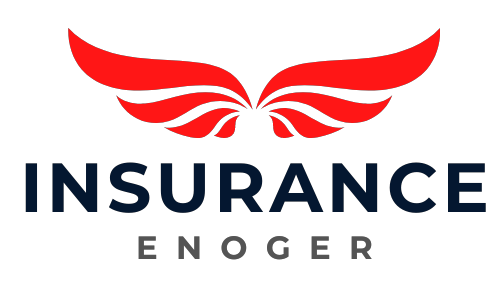It’s thrilling to design a home remodel with dreams of refaced spaces, improved function, and a more appealing way of living. But in the paint samples and schematics, one area that gets shortchanged is sitting down with your insurer. Before that initial hammer strike, it’s wise to know how remodels could affect your insurance. Knowing what to ask could spare a world of headaches down the road.
Will My Current Policy Pay for the Work?
This is the mother of all policies. Before any contractor sets foot on the premises, it’s well worth double-checking to determine whether the homeowners policy in question does or does not include renovation exposures. Not all policies approach home improvements the same, particularly for structural renovations or high-dollar jobs. Even relatively modest renovations can potentially change the insured value of a house or create exposures that never existed in the first place.
Things to ask:
- Is damage during renovation included under the current policy?
- Is there a dollar threshold for covered improvements?
- Would stolen construction equipment or building supplies be included?
Understanding these ahead of time avoids nasty surprises in the event of a problem with the build.
Do I Need to Raise My Dwelling Coverage?
Renovations can change the value of a property as a whole. Adding space, new finishes, or reconfiguring the kitchen can add significantly to the rebuild cost. Dwelling coverage—the part of homeowners insurance that reimburses for the physical building—may no longer be a reasonable estimate of the actual value after work has been completed.
Insurers often recommend checking the rebuild value after a large renovation project. Some even offer calculators or estimates to help with this determination of what improved coverage might be needed. One of the steps in upgrading home insurance, this one is lost in the excitement of making floor plans and selecting tile.
Are There Any Special Contractor Requirements?
Some insurance companies insist that the contractor provide their own liability and workers’ comp insurance. This safeguards the homeowner against an employee who is injured on the property or who happens to damage the property during construction. It is not just a standard request—it is a precaution.
Homeowners should ask their insurer:
- What are the contractor qualifications?
- Do I need to verify the builder’s certificates of insurance?
- Will the subcontractors be covered under the contractor’s policy?
Hiring skilled professionals like Kirkland builders will give you confidence as they will know about their job and are used to taking insurance-friendly actions. Nevertheless, it is wise to verify all the facts.

Will I Be Covered If I Stay Somewhere Else During the Renovation?
Extensive home remodeling activities render a house temporarily uninhabitable. In the case where there is a possibility of temporarily moving out for safety or convenience, that could affect terms of insurance. Although some policies insure a house completely only if it is occupied, others can offer a grace period in the course of remodeling.
It’s worth mentioning:
- Will it remain the same if the house is vacant?
- Are there any time restrictions on how long I can be absent during the building?
- Should temporary accommodation be claimed for insurance purposes?
It’s worth finding out now rather than waiting until there are coverage lapses on a big project.
How Will This Affect My Premium?
Home remodeling has the ability to change premiums in both directions. That new alarm system might pay for itself, and that pool installation might increase the cost. Insurers weigh risk with each alteration, so it’s not always a question of aesthetics—it’s a question of safety, value, and liability.
Questions to ask:
- Will this policy lower my premiums or raise them?
- Are there discounts for certain upgrades (e.g., stormproof windows)?
- When will the new rate be in effect—during or after construction?
To include this discussion early on not only accounts for labor and materials but also for insurance down the line.
Are There Specific Exclusions That I Should Know About?
Some homeowner policies have exclusions for damage to construction or improvements. It is not the fine print that nobody reads, but it exists. Knowing what is excluded can help to decide what endorsements or riders might be needed.
For example, if a policy precludes “acts of faulty workmanship,” that might be a warning to someone who is hiring less well-known kitchen renovators. Hiring experienced contractors who have open books can eliminate those risks and keep things on track.

Should I Purchase a Builder’s Risk Policy?
For major remodels, a builder’s risk policy would be recommended. This temporary coverage will actually pay for damage to property while constructing. It will generally pay for damage caused by fire, vandalism, theft, and weather. Not everyone will need it, but for large additions or large remodels, it is worth considering.
Ask the insurer:
- Would my project be insured under a builder’s risk policy?
- Is it available to be added to my current homeowners policy?
- When does the policy start and end?
It’s another safeguard that can pay big dividends if something goes wrong half-way through the project.
What Will I Need to Document?
It’s not the most pleasant aspect of home repair, but things have to be recorded when dealing with insurance. Pre- and after-pictures of the house, receipts for the material, permits, and contracts are all useful if a claim has to be filed.
It’s worth reviewing:
- What records do I keep in the insurance file?
- How would one report the progress when complete?
- Will the insurance company revalue the house?
By doing so, the road to complete coverage becomes simpler and offers peace of mind once the initial excitement has worn off and the work is done.
Home remodeling should be exciting, not worrisome. By posing the right questions up front, during, and afterward, homeowners can move forward with assurance, knowing their investment is protected each step of the way.





